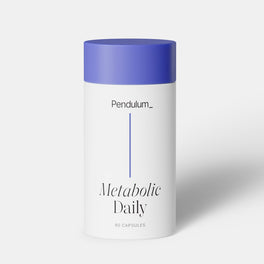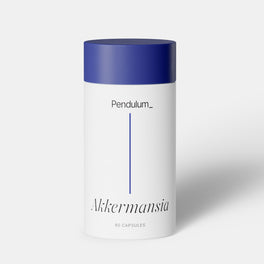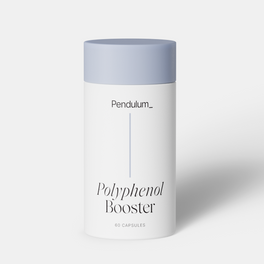Looks like your
cart is empty

Metabolic Daily
Improve metabolism

Akkermansia
Improves gut health

Polyphenol Booster
Increase antioxidants to protect cells
Stay in touch about special discounts, nutrition tips and additional education.
Looks like your
cart is empty

Improve metabolism

Improves gut health

Increase antioxidants to protect cells
In the ever-evolving landscape of health and wellness, a fascinating frontier has emerged, shedding light on the profound interplay between our gut and mental health. Beyond the conventional wisdom that the gut is the epicenter of digestion, recent scientific discoveries underscore its pivotal role in influencing our mental well-being. This intricate connection is not merely coincidental but reflects a sophisticated communication network known as the gut-brain axis.
At the heart of this symbiotic relationship are trillions of microorganisms residing in our digestive tract, collectively known as the gut microbiome. These microorganisms, including bacteria, viruses, and fungi, form a diverse ecosystem that plays a crucial role in maintaining a delicate balance within the body. Recent studies reveal a profound correlation between the composition of gut microbiota and mental health.
The gut microbiome doesn't merely aid in digestion; it actively communicates with the central nervous system through the vagus nerve, a key player in the gut-brain axis. This bidirectional communication influences various aspects of mental health, including mood regulation, stress response, and even cognitive function.
Serotonin, often hailed as the "happy neurotransmitter," is a key player in mood regulation. Surprisingly, the majority of serotonin isn't produced in the brain but in the gut. The gut microbiota, particularly certain strains of bacteria, contribute significantly to the synthesis of serotonin. Imbalances in gut microbiota composition have been linked to disruptions in serotonin levels, potentially contributing to conditions like depression and anxiety.
Chronic inflammation, a common denominator in various mental health disorders, also has ties to gut health. The gut's permeable lining, known as the gut barrier, acts as a defense against harmful substances. Imbalances in gut microbiota can compromise this barrier. The leakage of toxins and bacteria into the bloodstream triggers an inflammatory response, potentially reaching the brain and contributing to neuroinflammation—a factor implicated in conditions like depression, anxiety, and Alzheimer's disease.
Of course, if we’re talking about the gut microbiome, we also need to discuss the specific strains associated with gut health and mental health. Beneficial bacteria have been linked to improvements in mood and cognitive function. One study found that participants who consumed probiotics experienced reduced symptoms of depression and anxiety.
Conversely, research also suggests that the presence or absence of certain bacterial strains, such as Prevotella and Coprococcus, may impact mental health. These microbes are now under the scientific spotlight as there may be a potential association between lower levels of Prevotella and Coprococcus and depressive symptoms.
Akkermansia muciniphila, a mucin-degrading bacterium, has demonstrated its prowess not only in maintaining gut health but also in influencing mental well-being and chronic stress. Both animal and human studies report a negative correlation between depressive behavior and the abundance of Akkermansia, suggesting that increasing Akkermansia could be a potential method for treating depression and anxiety.
As we navigate the burgeoning field of gut-brain research, it becomes evident that the state of our gut is intricately linked to the state of our mind and that specific bacterial strains wield influence over our mental state. A balanced diet rich in fiber, fermented foods, prebiotics, and probiotic supplementsprovides a fertile ground for a diverse and resilient gut microbiome. Coupled with lifestyle factors like stress management and regular physical activity, nurturing gut health becomes a cornerstone in the pursuit of mental well-being.